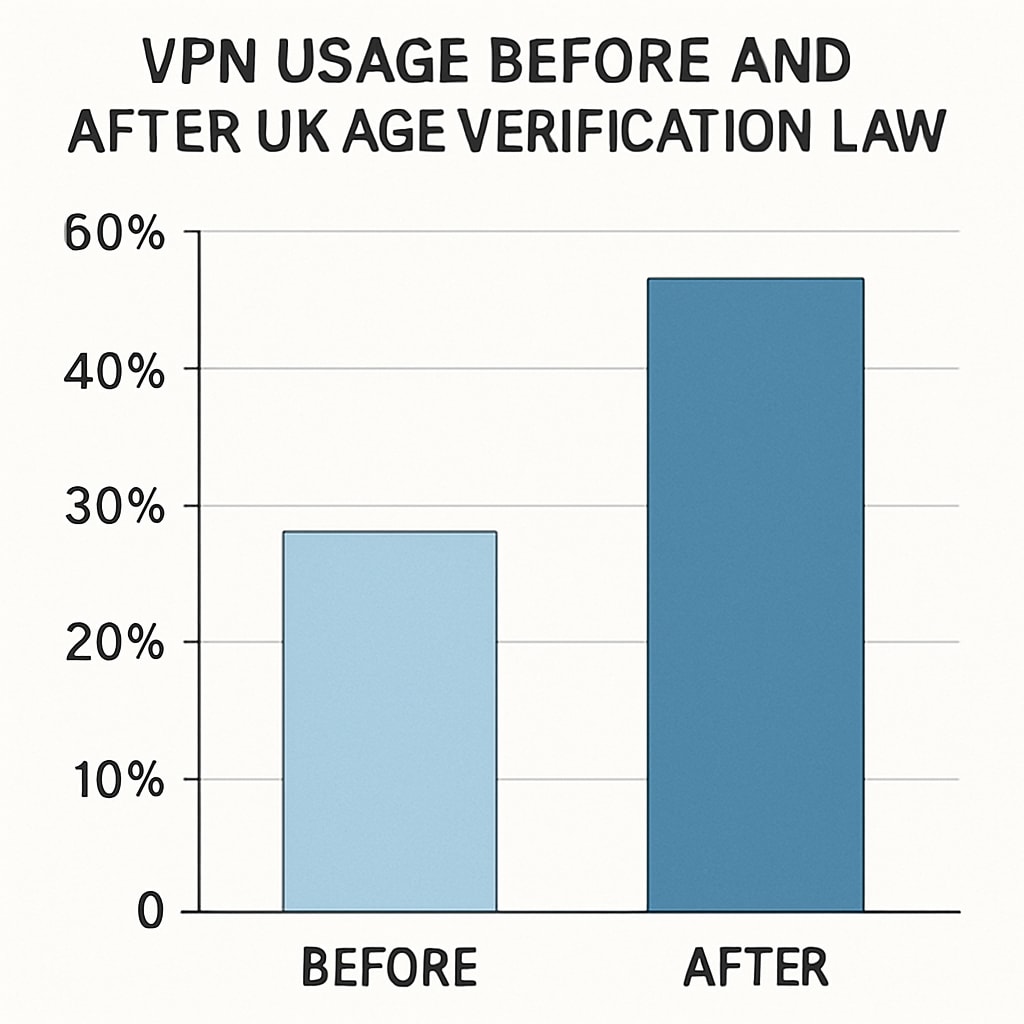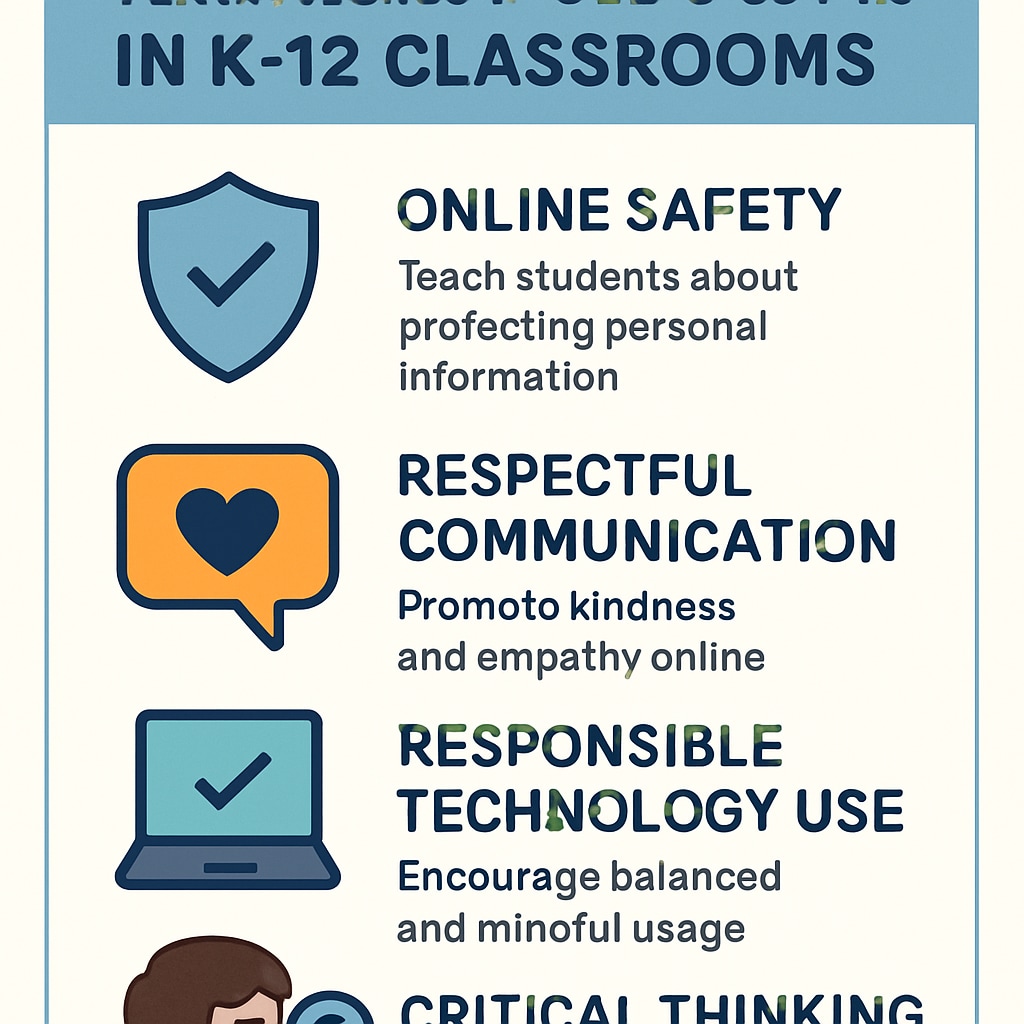The UK’s age verification law, designed to restrict access to adult content online by requiring users to prove their age, has inadvertently led to a surge in VPN (Virtual Private Network) usage. VPNs, which enable users to bypass restrictions by masking their location, are increasingly being adopted by individuals seeking to circumvent these measures. While the law aims to protect underage users, the unintended consequence of increased VPN adoption raises critical questions about the effectiveness of such policies and the role of education in fostering responsible digital habits, particularly among K12 students.

The UK’s Age Verification Law: Objectives and Outcomes
The age verification law was introduced as part of broader efforts to ensure that minors are shielded from harmful online content. By requiring users to provide official identification, the regulation aims to create a safer digital environment. However, the legislation has faced criticism for its potential privacy risks and technological limitations.
One significant outcome of this law has been the rise in VPN usage. VPNs allow users to bypass geo-restrictions and maintain anonymity online, making them an attractive tool for individuals who oppose invasive verification processes. According to recent reports, VPN searches in the UK increased by over 200% immediately following the law’s implementation (VPN on Wikipedia). This surge in adoption not only undermines the effectiveness of the law but also introduces new risks, such as unregulated access to potentially harmful content.
Implications for K12 Students and Digital Education
For K12 students, the growing popularity of VPNs presents a unique challenge. While VPNs can be valuable tools for privacy and security, their misuse poses risks, including exposure to inappropriate content and vulnerability to cyber threats. This situation underscores the need for comprehensive digital education that goes beyond technical knowledge to address ethical considerations and responsible online behavior.
Educators and parents can play a pivotal role in guiding students toward safe and constructive use of technology. For example:
- Teaching digital citizenship: Foster discussions around online ethics, privacy, and the consequences of circumventing security measures.
- Promoting awareness: Help students understand the risks associated with VPN misuse, such as data breaches and exposure to malware.
- Encouraging safe alternatives: Introduce tools and practices that prioritize security without compromising regulatory compliance.

Balancing Protection and Empowerment
One of the most challenging aspects of implementing policies like the UK’s age verification law is finding a balance between protecting minors and empowering them to navigate the digital world responsibly. Heavy-handed restrictions may lead to unintended consequences, such as increased reliance on VPNs, while inadequate education leaves students ill-equipped to handle online risks.
To strike this balance, policymakers and educators must collaborate to create solutions that integrate technical safeguards with educational initiatives. For instance:
- Incorporating cybersecurity into curriculum: Schools can include lessons on online safety, privacy, and ethical technology use.
- Providing parental resources: Equip parents with tools and knowledge to monitor and guide their children’s online activities effectively.
- Advocating for transparent policies: Call for regulations that are both effective and respectful of user privacy, reducing the incentive to bypass them.
Ultimately, the goal is to foster an environment where students not only comply with legal safeguards but also develop the skills and mindset to be responsible digital citizens.
Conclusion: A Call to Action for Educators
The UK’s age verification law offers valuable lessons about the complexities of regulating the digital space. While the rise in VPN usage highlights the limitations of such policies, it also serves as a reminder of the importance of education in addressing these challenges. By equipping K12 students with the knowledge and tools to navigate the online world safely and ethically, educators can play a crucial role in shaping the next generation of responsible digital citizens.
As technology continues to evolve, so too must our approach to digital safety and education. The intersection of legislation, technology, and education presents an opportunity to rethink how we protect and empower young users in the digital age. For educators, this is not just a challenge but a call to action.


